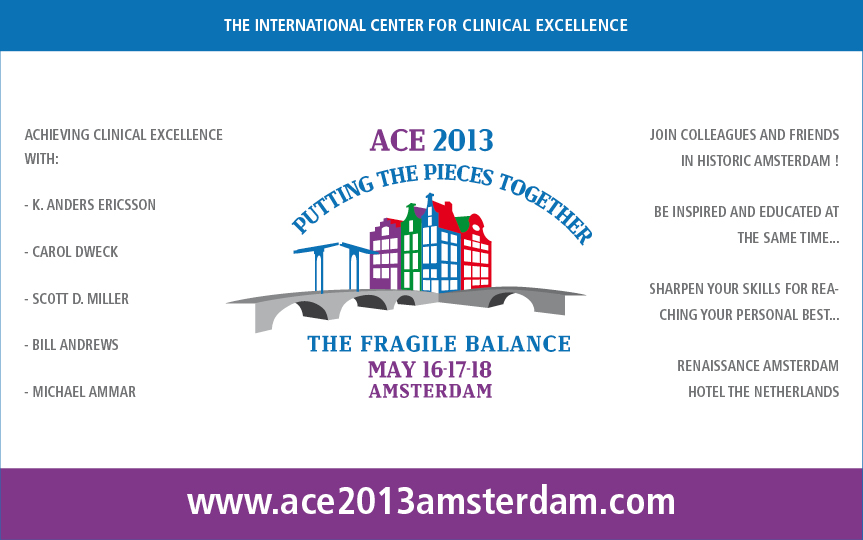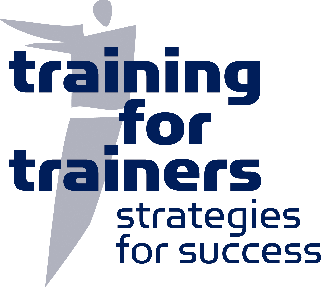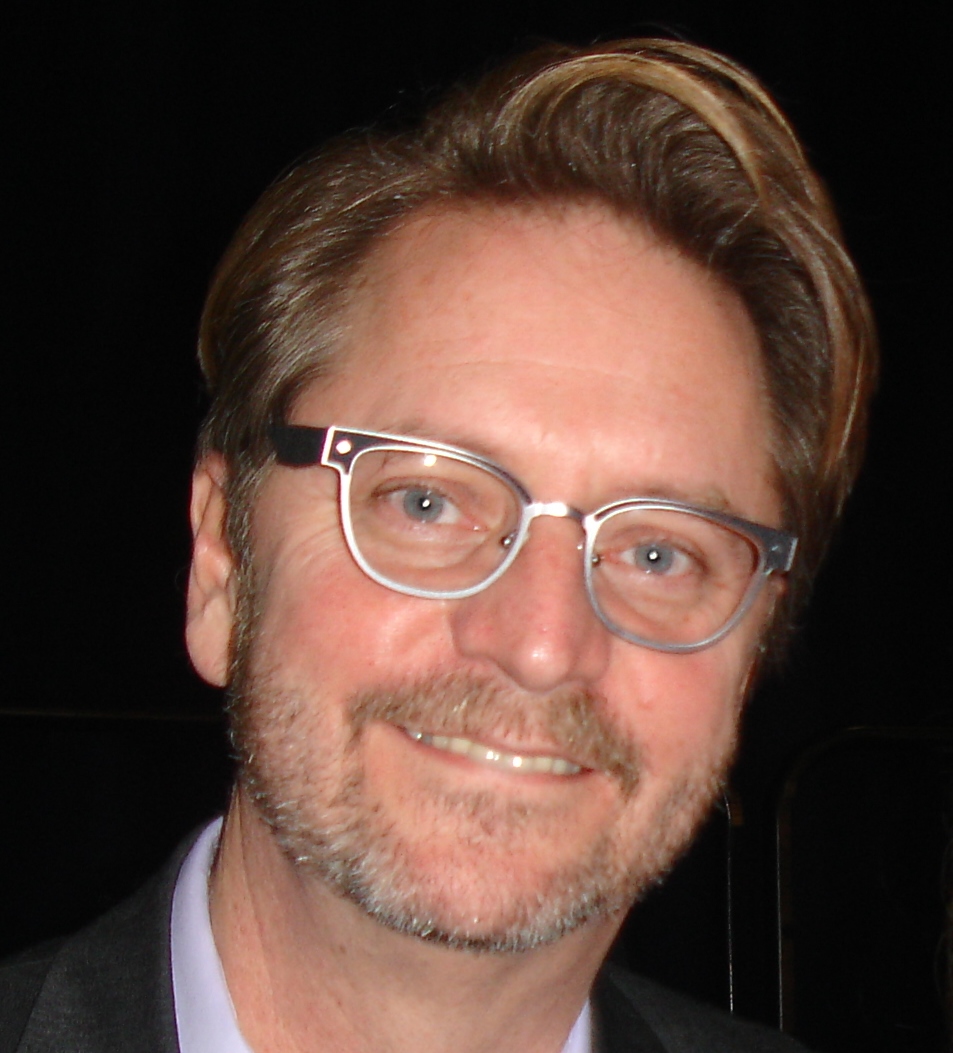
In October 2010, the first annual “Achieving Clinical Excellence” was held in Kansas City, Missouri. A capacity crowd joined leading experts on the subject of top performance for three days worth of training and inspiration. K. Anders Ericsson reviewed his groundbreaking research, popularized by Malcolm Gladwell and others. ICCE Director, Scott D. Miller translated the research into speciific steps for improving clinical performance. Finally, classical piansts David Helfgott, Rachel Hsu, and Roger Chen, demonstrated what can be accomplished when such evidence-based strategies are applied to the process of learning specific skills.
The ICCE is proud to announce the 2nd “ACE” conference to be held May 16th-18th, 2013 in Amsterdam, Holland. Join us for three educational, inspiring, and fun-filled days. Register today and receive a significant “Early Bird” discount. The ACE conference committee is also issuing an international “Call for Papers.” If you, your agency, or practice are committed to excellence, using outcomes to inform practice, or have published research on the subject, please visit the conference website to submit a proposal.
Here’s what attendees said about the last event:





.jpg)
.png)